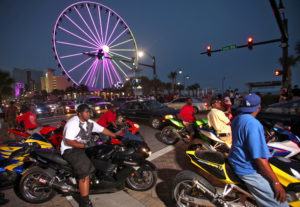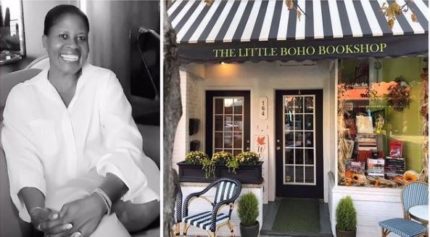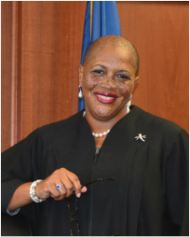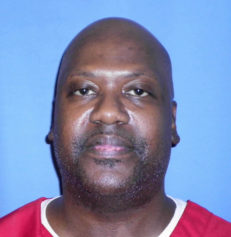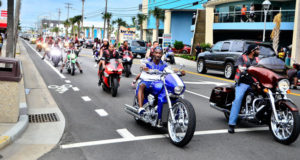
Shortly after a group of predominantly white bikers in Waco, Texas, initiated a massive shoot out that resulted in the death of nine people, it was a group of predominantly Black motorcycle enthusiasts in South Carolina that found themselves being placed under strict new rules and regulations.
During the last weekend of May every year for more than 20 years, a large collection of mostly Black motorcycle lovers have gathered together for the Atlantic Beach Memorial Day Bikefest, known by many as “Black Bike Week,” but this year the event ended in widespread frustration.
Ocean Boulevard, a two-lane commercial strip that gets slammed with bikers for the Memorial Day weekend festivities was partially closed this year as additional barricades and police officers were on site. It ultimately resulted in a massive gridlock that completely ruined the entire purpose of the event.
Rather than joyfully riding their beloved vehicles, the bikers were merely sitting together inching along in traffic. Some opted to simply park it on the sidelines as they watched Ocean Boulevard become less of a street and more of a parking lot. It was a huge disappointment for the crowd of bikers that traveled from all corners of the nation to attend the annual event.
“You can’t ride a Harley. You can’t move,” Sean Robinson, one of the disappointed attendees from Richmond, Virginia, said, according to The Guardian. “It used to be open and you could go both ways, sideways, everything.”
This year was a different story.
The two-way street was transformed into a one-way traffic loop around Myrtle Beach, a move that Myrtle Beach’s public information officer insists was simply made with the safety of the public in mind. Mark Kruea claimed that the “pedestrian protections” worked well “as did the extended traffic loop” despite the fact that injuries and assaults were still reported.
The same kind of injuries and violent incidents that typically come with any massive crowd whether they are attending a concert, a parade, Spring Break festivities or even another Myrtle Beach bike fest with mostly white attendees instead.
That’s the matter that’s truly at the heart of public discourse surrounding the new rules and regulations that have successfully left the so-called “Black Bike Week” void of its usual enjoyment for the attendees.
Before the Black Bike Week kicks off during the last weekend of May, the Harley-Davidson Motorcycle Rally has a nearly identical set of festivities in the same month. So what’s the main difference between the two?
This rally’s attendees are mostly white.
Jason Eastman, a sociologist at Coastal Carolina University, has studied how the community has reacted to both of the biker events and found that there is a clear difference in how the group of Black bikers was perceived when compared to their white counterparts, regardless of just how similar the events were.
He analyzed more than 8,000 comments left by Sun News readers about both the Harley rally and the one known best as Black Bike Week.
To no surprise, comments about Black Bike Week were riddled with accusations that the group of motorcycle enthusiasts were “thugs” and “criminals.” They were slammed as being dangerous, irresponsible and a threat to the community. Comments insisted they were “underclass” citizens who “attend the rally to steal and murder.”
Eastman noted in his paper, published last month in Contemporary Justice Review, that the activities that take place at both rallies are nearly identical. Massive crowds fill the streets, riders rev their engines and blast their music, fights break out as the result of individual arguments and both rallies serve to be a bit of a nuisance when it comes to traffic and a wave of tourists.
But as similar as the rallies and their attendees are, the way they are perceived drastically differs.
“White bikers are framed as mature, upscale upper class citizens who exemplify strong morals and American individualism, such as when one Internet poster claims: ‘The Harley people visiting our town are good, hard working people,’” Eastman’s paper notes. “‘Most of them have served in the military, police or fire depts. Most of them have families, and most have no criminal record. Quite often I have met doctors, lawyers, ministers, corporate CEOs, and good people from all walks of life.’”
When white bikers are caught acting in an unlawful manner, even then they are not excused from benefiting from white privilege. Eastman explains that when they break laws or act in a violent, irresponsible manner, it is perceived as “a few isolated white bikers” who are simply letting off steam from the stress of their daily lives.
Black bikers, on the other hand, were perceived as criminals for infractions as simple as revving their engines loudly—something nearly ever biker does at both of the May events. Some Black bikers were even arrested for doing so.
“Unlike the Harley rally, where moral deviance is blamed on a few isolated white bikers, posters attribute criminality to most, if not all, BikeFest participants,” Eastman added. “And unlike white bikers whom posters perceive as capable of policing themselves, there are widespread calls of further and most stringent law enforcement during ‘Black Bike Week.’ “
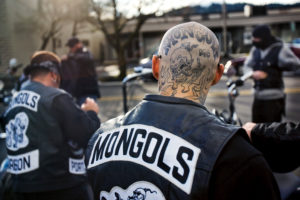
This remains true even when discussing the true nature of what bikers really are. While there is an overwhelming population of people who simply love riding their motorcycles, outlaw motorcycle gangs are actually still a major problem in America.
Such gangs are responsible for drug dealing, wide spread violence and other illegal activities that are associated with one of America’s favorite coded words—thug. But you will rarely hear them referred to as such.
Instead, these bikers will forever be viewed as modern day rebels fighting a worthy cause by blatantly disregarding the law or secretly kindhearted bad asses who are simply the victims of being misunderstood and judged.
For Black motorcycle lovers, however, they are mindless thugs and violent criminals as soon as they hop on a motorcycle, put on a hoodie, play their music loudly, walk down the street or even protest in hopes that the country they now call home will recognize that their lives matter.
